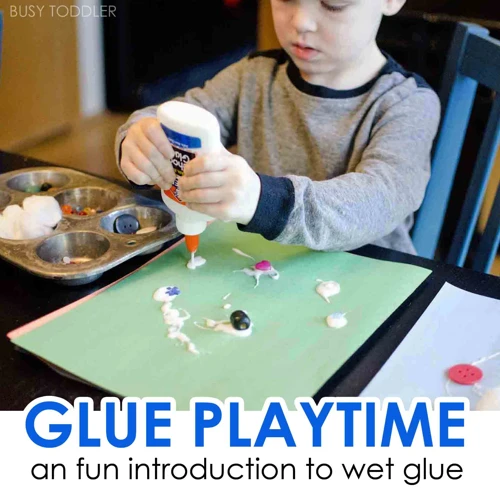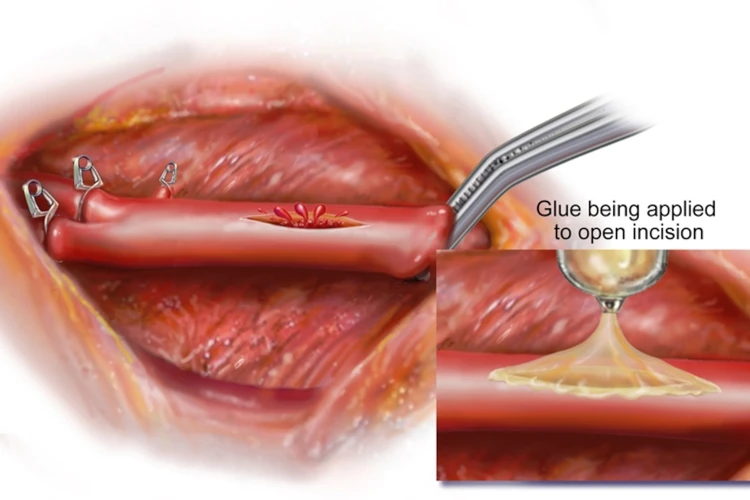Introduction
Have you ever thought about eating glue? The idea may seem bizarre, but a surprising number of people have experimented with this dangerous behavior. Despite the risks, some individuals seem unable to resist the temptation to consume glue, which can have serious consequences for their health. In this article, we will explore the topic of eating glue, including the reasons why people do it, the effects on the body and mind, and what to do if you or someone you know has ingested this substance. So buckle up and get ready to dive into this perplexing topic.
What is glue?
Glue is a sticky substance that is used to bond two surfaces together. It is composed of various chemicals that determine its properties such as the drying time and adhesive strength. Glue is commonly used in construction, woodworking, and art and crafts. There are various types of glue available on the market such as wood glue, super glue, and paper glue.
| Type of glue | Usage | Main ingredients |
|---|---|---|
| Wood glue | Used in woodworking and carpentry for bonding wood pieces together | Water and formaldehyde-based resin |
| Super glue | Used for bonding plastics, metal, and ceramics | Cyanoacrylate |
| Paper glue | Used for bonding paper to paper or paper to other surfaces | Modified starch or polyvinyl acetate (PVA) |
Despite its many uses, glue is not meant to be ingested. Eating glue can have harmful effects on the body and brain. If you need to remove glue from a surface, there are better ways to do it without resorting to consuming it. For instance, if you need to remove nail glue, you can follow these steps: /how-to-remove-kds-nail-glue/.
Why do people eat glue?
Why do people eat glue?
Eating glue is not a common behavior, but it does happen. There are a few reasons why people might eat glue. Here are some possible explanations:
| Reasons | Explanation |
|---|---|
| Boredom or curiosity | Some people may eat glue simply because they are bored or curious. Trying strange things can be exciting or entertaining, but it can also be dangerous. |
| Sensory seeking | For some people, eating glue may provide sensory stimulation. The texture and taste of the glue may be satisfying in some way. |
| Childhood habits | Some adults may continue to eat glue because they developed the habit as a child. It may have started as a way to mimic the behavior of peers or to seek attention. |
| Pica | Pica is a condition characterized by an appetite for non-food items. It can be a symptom of an underlying nutritional deficiency, mental health disorder, or developmental disorder. Some people with pica may eat glue. |
Regardless of the reason, eating glue can have serious consequences for one’s health. If you or someone you know is struggling with this behavior, it’s important to seek help.
If you accidentally get glue on your skin or ingest it, check out our article on how to remove super glue from metal lock, how to remove gorilla glue from wall, how to remove wallpaper glue that has been painted over, how to get tape glue out of hair, how to get glue tack off walls, how to remove Elmer’s glue from paper, how to get skin glue off skis, how to remove eye glue, or how to remove plastic glue.
Eating glue: Effects on the body and brain
When someone consumes glue, the effects can be detrimental to both the body and the brain. Glue contains a mixture of chemicals that, when ingested, can cause various physical and psychological risks. The aftermath of glue consumption can lead to a state of confusion, dizziness, and sometimes even numbness. In this segment of the article, we will delve into the different effects that glue can have on the human body and mind.
Physical risks
Eating glue can have severe physical risks on the body. The table below outlines the potential dangers of ingesting glue:
| Physical Risks | Description |
|---|---|
| Vomiting and Diarrhea | Glue contains chemicals that can cause nausea, vomiting, and diarrhea. Ingesting large amounts of glue can lead to dehydration and electrolyte imbalances, which can be life-threatening. |
| Obstruction of digestive system | Swallowing large amounts of glue can cause blockages in the digestive system, leading to severe constipation or even bowel obstruction. This can require surgery and lead to long-term health complications. |
| Lung problems | Inhaling the fumes from glue can cause damage to the lungs, leading to respiratory problems and chronic conditions such as asthma. |
| Damage to internal organs | Glue contains chemicals that can cause damage to the liver, kidneys, and other vital organs if ingested in large amounts over a long period of time. |
| Allergic reactions | Sensitive individuals may develop an allergic reaction to the chemicals in the glue, which can cause symptoms such as hives, rashes, and difficulty breathing. |
It is important to note that ingesting glue can cause harm to the body beyond the physical risks mentioned above. It is essential to seek medical attention immediately if you or someone you know has ingested glue.
Psychological risks
When it comes to the psychological risks of eating glue, there are several concerns that need to be addressed. Here are some potential psychological risks individuals may face when regularly consuming glue:
- Brain damage: Glue contains chemicals that can be neurotoxic, which means they are poisonous to the brain. Repeated exposure or consumption of these chemicals can lead to long-term brain damage.
- Impaired cognitive function: Along with potential brain damage, inhaling or ingesting glue fumes can impair cognitive function, making it difficult to think, focus or concentrate.
- Addiction: People who consume glue or other toxic substances may be at risk of developing an addiction to these substances. This is because they release dopamine, the “feel-good” chemical in the brain, which produces a temporary high and creates a craving for more.
- Mental health issues: Those who consume glue may be at a higher risk of developing mental health issues such as depression, anxiety, or even schizophrenia.
- Social isolation: Regular glue use can lead to social withdrawal, as individuals may become obsessed with consuming the substance and prioritize it over social interactions or other healthy activities.
It’s important to note that the psychological risks associated with consuming glue may vary from person to person and depend on the amount and frequency of consumption. However, it’s clear that the risks are significant and potentially life-altering. If you or someone you know is struggling with glue consumption, seek professional help immediately.
Why do I feel numb after eating glue?
After consuming glue, some people may experience a strange sensation of numbness in their face or mouth. This can be a perplexing experience for those who have never encountered it before. However, it is not entirely uncommon for people who have ingested glue, as the ingredients cause neurological effects that can result in numbness. In this section, we will explore the reasons behind why glue can cause a feeling of numbness, its ingredients that contribute to the sensation, and its effects on the nervous system.
Ingredients that cause numbness
When it comes to the ingredients in glue that cause the sensation of numbness, there are a few key culprits. Here are some of the primary substances responsible for this effect:
- Toluene: This chemical compound is found in many adhesives, including super glue. Toluene is a solvent that can cause dizziness and disorientation, and it can also lead to numbness in the extremities.
- Xylene: Another common solvent found in many types of glue, xylene can cause similar symptoms to toluene, including numbness and tingling in the hands and feet.
- Methanol: This substance is often present in industrial-strength adhesives and can be extremely toxic if ingested. Methanol poisoning can lead to central nervous system depression, including numbness and tingling sensations.
- Nitromethane: Used in some types of high-performance adhesives, nitromethane is a potent neurotoxin that can cause numbness, weakness, and even seizures if ingested in sufficient quantities.
While some of these ingredients are present in only small amounts in most household glues, repeated exposure can still have a cumulative effect and lead to unpleasant symptoms like numbness. If you’re experiencing these sensations after eating glue, it’s important to seek medical attention as soon as possible to rule out any serious health risks.
Effects of glue on the nervous system
The chemicals found in glue can be very harmful to the nervous system. One of the main ingredients in glue is toluene, which is a toxic solvent. When someone ingests glue, the toluene can easily enter the bloodstream and make its way to the brain.
Here are some of the effects that toluene can have on the nervous system:
- Headaches: Toluene can cause headaches, which can be quite severe in some cases. These headaches may feel like a dull ache or a sharp pain and can last for several hours or more.
- Dizziness: Toluene can also cause dizziness. This can make it difficult to stand or walk, as you may feel unsteady on your feet.
- Numbness and tingling: In addition to causing a general feeling of numbness, toluene can also cause a tingling sensation in the limbs. This can be a very uncomfortable sensation and can interfere with normal activities.
- Loss of coordination: Toluene can affect the way the brain communicates with the body, causing loss of coordination. This can make it difficult to perform tasks that require a high level of physical skill, such as playing a sport or driving a car.
While these effects can be unpleasant, they can also be quite dangerous. If you experience any of these symptoms after ingesting glue, it’s important to seek medical attention right away.
What to do if you’ve eaten glue
Finding yourself in a situation where you have eaten glue can be a frustrating and overwhelming experience. Your first reaction might be to panic, but it’s important to remain calm and take action immediately. In this section, we will discuss steps you should take if you’ve eaten glue along with tips on preventing future episodes. It’s crucial to act fast and seek medical attention if necessary to minimize any potential risks glue consumption may have on your body and wellbeing.
Seek medical attention
If you’ve eaten glue and are experiencing numbness or other physical symptoms, it’s important to seek medical attention immediately. This is because the ingredients in glue can be harmful to your body and brain.
Here are some steps you can take if you’ve eaten glue:
| Step 1: | Remain calm and try to stay still. Moving around can increase the risks of the glue entering your bloodstream and causing further damage. |
| Step 2: | Seek medical attention right away. Call 911 or your local emergency number if you are experiencing severe symptoms such as difficulty breathing or loss of consciousness. If you are unsure of what to do, call your doctor or poison control center for advice. |
| Step 3: | Provide as much information as possible about the type and amount of glue you have ingested, any symptoms you are experiencing, and any other relevant information, such as past medical history or allergies. |
| Step 4: | Follow the medical advice provided by the healthcare professional. This may include receiving treatment to remove the glue from your body, monitoring of your vital signs, and administration of medication to treat any symptoms you are experiencing. |
Remember, seeking medical attention promptly can help to prevent serious long-term consequences from ingesting glue. Don’t hesitate to reach out for help and follow the guidance of healthcare professionals.
Prevent future episodes
To prevent future episodes of eating glue, there are a few steps that you can take. First and foremost, it’s important to recognize the triggers that may cause you to reach for the glue. This could be stress, boredom, or even just a habit that you’ve developed over time. Once you’ve identified these triggers, you can work on finding healthier ways to deal with them.
1. Find alternative coping mechanisms
If you tend to reach for glue when you’re stressed or anxious, it’s important to find alternative coping mechanisms. This could be anything from exercise to meditation to journaling. Find something that works for you and make it a regular part of your routine.
2. Keep glue out of reach
Another way to prevent future episodes of eating glue is to keep it out of reach. If you don’t have glue readily available, you’ll be less likely to indulge in the habit. Keep glue in a locked cabinet or drawer, or simply avoid purchasing it altogether.
3. Seek support
Sometimes, it can be difficult to break a habit on your own. Consider seeking support from a therapist or support group. They can provide you with valuable tools and strategies to overcome your habit and prevent future episodes.
4. Stay accountable
Finally, staying accountable to yourself and others can be a powerful motivator. Consider enlisting the help of a friend or family member to hold you accountable for your actions. Knowing that someone else is counting on you can help you stay motivated and on track.
Conclusion
After examining the effects of glue consumption on the body and brain, it is clear that there are numerous physical and psychological risks associated with this dangerous behavior. Glue contains toxic chemicals and adhesives that can have harmful effects on the body, including damage to the lungs, liver, and nervous system. Additionally, the psychological risks of eating glue can include addiction, impaired judgment, and long-term cognitive damage.
It is important to seek medical attention immediately if you or someone you know has consumed glue, as early treatment can help prevent or reduce serious health complications. In order to prevent future episodes of glue consumption, it is important to educate yourself and others about the dangers of this behavior and to seek help from a medical professional or counselor if necessary.
No one should ever feel compelled to resort to such risky and harmful behavior as a means of coping with stress, anxiety, or other problems. There are healthier and safer ways to manage difficult emotions, including talking to a trusted friend or therapist, engaging in physical exercise or mindfulness practices, and seeking professional treatment for mental health issues.
Ultimately, by understanding the dangerous effects of glue consumption and taking proactive steps to prevent it, we can promote a healthier, safer, and more positive way of living for ourselves and for our communities.
Frequently Asked Questions
Can eating glue cause permanent damage to my body or brain?
Yes, eating glue can have serious long-term effects on your body and brain. It can cause damage to your digestive system, nervous system, and brain cells.
What are some common ingredients found in glue that can cause numbness?
Some ingredients found in glue that can cause numbness include toluene, xylene, and benzene.
Is there any safe amount of glue that can be eaten?
No, there is no safe amount of glue that can be eaten. Eating any amount of glue can be harmful and should be avoided completely.
Can glue addiction be treated?
Yes, glue addiction can be treated with the help of a medical professional. Treatment may involve therapy, medication, and support groups.
Is it normal to feel embarrassed about eating glue?
Yes, it is normal to feel embarrassed about eating glue. It is important to understand that this behavior is not uncommon and seeking help is the first step towards recovery.
Can children who eat glue overcome this behavior as they grow older?
Yes, with proper treatment and support, children who eat glue can overcome this behavior as they grow older. Early intervention is key in preventing long-term harm.
Are there any safe alternatives to eating glue for sensory stimulation?
Yes, there are many safe alternatives for sensory stimulation such as fidget toys, stress balls, and putty.
Can eating glue lead to addiction to other substances?
Yes, eating glue can increase the risk of addiction to other substances later in life. It is important to seek help and address this behavior as soon as possible.
What are the signs of glue addiction?
Some signs of glue addiction include cravings for glue, inability to stop using glue, withdrawal symptoms when trying to stop, and continued use despite negative consequences.
Can eating glue affect my school or work performance?
Yes, eating glue can have negative effects on your cognitive abilities and performance in school or at work. It is important to seek help to address this behavior and prevent long-term harm.


